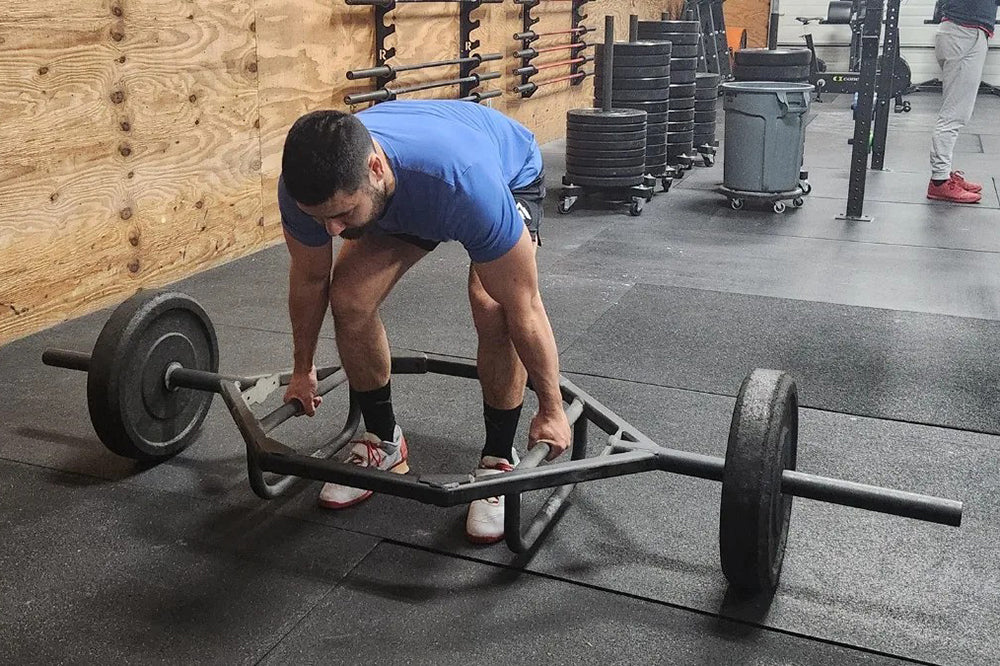When you’re looking to optimize your strength training routine, the right equipment can make all the difference. Among the essential tools in any gym setup is the trap bar, also known as the hex bar or hexagonal bar. This unique piece of equipment is celebrated for its ability to reduce stress on the lower back while effectively engaging the legs and glutes. But one aspect that often goes overlooked is the weight of the trap bar itself, a detail that plays a crucial role in your lifting progress and safety.
Why We Should Know Trap Bar’s Weight
Before you start lifting or even purchase a trap bar, it’s important to understand why its weight is significant. Unlike traditional barbells, trap bars come in various designs, each with its own weight range. Knowing the exact weight of your trap bar helps you accurately calculate the total load you’re lifting, which is vital for tracking your progress and setting realistic goals. Understanding the trap bar's weight is essential for accurate lifting and training.
Moreover, understanding the weight helps you make an informed choice when selecting a trap bar that aligns with your fitness level and goals. Whether you’re aiming to gradually increase your strength or need a bar that challenges you right from the start, the weight of the trap bar is a key factor to consider.
Different Types of Trap Bars and How Most Trap Bars Weigh
Trap bars are typically categorized into two main types: Most trap bars, particularly the traditional hex design, weigh between 40 and 70 pounds. Knowing the specific weight of your trap bar is crucial for accurate lifting and training.
-
Standard Trap Bar: Weighs around 45 pounds (20.4 kg), similar to a standard Olympic barbell. This version is ideal for most lifters, offering a familiar weight while providing the ergonomic benefits of the trap bar’s design. The common hex bar weight is significant for different lifting exercises, ensuring you can effectively plan your training.
-
Heavy-Duty Trap Bar: Ranges from 55 to 75 pounds (24.9 to 34 kg). This heavier version is designed for those who are ready to take on more substantial lifting challenges, offering increased resistance and the opportunity to push your limits further. Unlike the traditional hex bar, it provides additional benefits for advanced lifters seeking more intense workouts.
The design of the trap bar, with its hexagonal shape, allows you to stand in the center, ensuring a balanced load and a neutral grip. This setup not only reduces the risk of injury but also enables you to lift heavier weights with greater stability, making it a popular choice for deadlifts and other compound exercises.
Beyond the Weight: The Versatility of the Open Hex Bar
The trap bar isn’t just about its weight—it’s also about the versatility it brings to your workout. While it’s commonly associated with deadlifts, the trap bar can be used for a variety of exercises, from squats and farmer’s walks to shrugs. Its design promotes a more upright posture, which is particularly beneficial for those with lower back issues or mobility limitations. The open hex bar, growing in popularity, allows for easier engagement in dynamic movements like farmer’s walks and lunges, without needing to step into the bar.
This versatility makes the trap bar a valuable addition to any strength training program. Whether you’re recovering from an injury, looking to add variety to your routine, or simply want to maximize your workout efficiency, the trap bar has something to offer. Adjustable hex bars further enhance this versatility by allowing users to customize their lifting experience, catering to a broad range of users from beginners to advanced lifters, and enabling various exercises with improved ergonomics.
How to Integrate the Trap Bar into Your Routine
When incorporating a trap bar into your training, start by considering your current fitness level. Beginners might find the standard trap bar more manageable as they build strength and confidence. As you progress, experimenting with a heavy-duty trap bar can introduce new challenges and help you break through plateaus. Finding the perfect hex bar can enhance lifting performance by accommodating various fitness levels and training goals.
It’s also important to explore the different exercises that the trap bar can support. Don’t limit yourself to just deadlifts—use it for a wide range of movements to fully capitalize on its design benefits. The trap bar’s ability to distribute weight evenly and support a neutral grip can improve your form across various lifts, leading to better results and fewer injuries. Standard hex bars provide improved balance and safety during lifting, reducing the risk of accidents that can occur with traditional barbells.
Conclusion: The Trap Bar as a Game-Changer
Choosing the right trap bar and understanding its weight can significantly influence your strength training outcomes. This equipment offers a unique combination of safety, versatility, and the potential for heavier lifts, making it an indispensable tool for both beginners and seasoned lifters. The hex deadlift bar is ideal for deadlifting due to its design that allows users to lift from a centered position.
By integrating a trap bar into your routine, you’re not just adding another piece of equipment—you’re enhancing your overall approach to lifting. The key to success lies in understanding your tools and using them to their full potential, starting with something as fundamental as knowing how much your trap bar weighs.












































Leave a comment
This site is protected by hCaptcha and the hCaptcha Privacy Policy and Terms of Service apply.